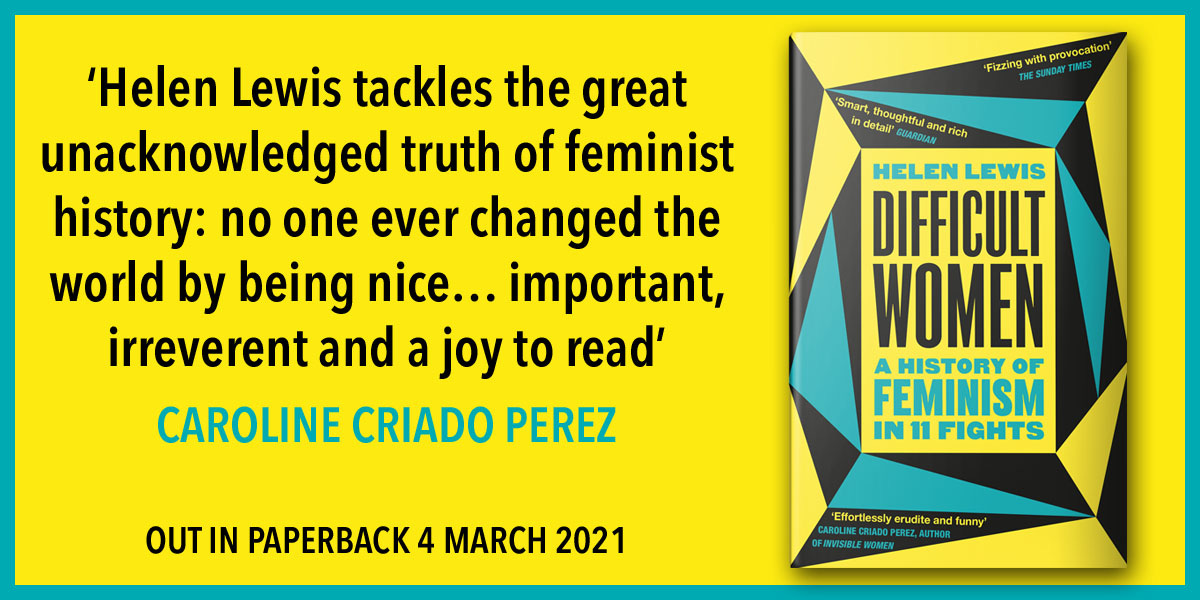Happy Friday!
I’ve written something distressingly sprawling about Slate Star Codex/Peter Thiel/Gawker/Phrenology later down the email, so I’ll keep the intro short.
This was it. Oh—and watch Lupin! But with subtitles, not the terrible dubbing.
Helen
Inside Facebook’s Supreme Court (New Yorker)
“For our first case, the moderator projected a picture of a smiling girl in a yearbook photo, with a cartoon thought bubble that read “Kill All Men.” Facebook had removed the post for violating its hate-speech rules, which ban attacks based on “sex, gender identity.” To many, this seemed simplistic. “It’s a joke,” one woman said. “There has to be an exception for humor.” Facebook’s rules did include a humor exception, for instances in which the user’s intent was clear, but it was difficult to discern this person’s motivation, and attendees worried that a broad carve-out for jokes could easily provide cover for hate speech. Carmen Scurato, who works at Free Press, an Internet-advocacy organization, pointed out the historical disadvantage of women, and argued that hate-speech policies ought to take power dynamics into account. In the end, the group voted to restore the photo, though no one knew exactly how to write that into a rule.”
This piece, written by someone on Facebook’s Oversight Board and therefore semi-authorised by Facebook, gestures towards a few of the problems with the Oversight Board (ie it can’t intervene when Facebook decides to keep something up, only when it takes something down; it can only intervene on cases brought to it, rather than tackling fundamental issues like, “have you thought about reducing virality, and hence engagement, and hence your profits?”). The story also reveals the inherent madness of a US company making rules for internet use across the world: it inevitably tends towards a kind of cultural imperialism, despite the international make-up of the board.
My position on all this remains: “Change my mind: there is no way to mitigate Facebook’s awesome, undemocratic power, because the awesome, undemocratic power itself is the problem.”
In Defence of Interesting Writing On Controversial Topics (Slow Boring)
Part of the practice of rationalism is that to do it effectively, you have to be willing to be impolite. Not necessarily 24 hours a day or anything. But when you’re in Rationalism Mode you can’t also “read the room.” A rationalist would say that human psychology is over-optimized for reading the room and that to get at the truth you need to be willing to deliberately turn off the room-reading portion of your brain and just throw your idea out.
[…]
[America] has been torn apart over the past 5-6 years by a running argument between people on the left who believe that remedying systemic racism as manifest in the law enforcement system is an incredibly important issue and people on the right who believe that the left’s failure to support our law enforcement heroes is a crisis that threatens to unleash anarchy across the country. [Scott] Alexander’s view is that this is all incredibly unimportant and you should give your money to cost-effective public health charities in Africa.
Matt Yglesias writes about Scott Alexander of Slate Star Codex, the blogger most associated with the “rationalist” movement, a loose collection of thinkers based around the San Francisco Bay area, who are dedicated to defying intuition and puncturing mainstream views which are not founded on evidence. (If you want to know more about them, Tom Chivers wrote a whole book!)
SSC’s blogs are very popular with the tech community based around San Francisco, which is both a good thing—the blogs are very clever and thought-provoking—and an ambivalent thing. There are a lot of smart people in that world who regard most of humanity as dumb Morlocks, and they can succumb to the kind of biases to which smart people are prone. “Rationalism” can become a cover for pushing bad ideas which pose as science, in the way that phrenology or mesmerism looked like science to 19th century scientists. “Thinking the unthinkable” sometimes gets you to a theory of gravity, and other times to eugenics.
The proximate cause of Yglesias’s piece is that the NYT published an article heavily intimating—though never actually saying—that the rationalist movement is a haven for men with Bad Reactionary Politics, like Peter Thiel. More controversially, it was framed around Scott Alexander, and he caused a minor internet explosion last year when he revealed that the NYT planned to publish his full name, which he said would jeopardise his work as a psychiatrist. The reporter and editor on the story then got barraged over email by SSC fans. SSC has since “come out” as Scott Siskind, quit his job, and started a mental health clinic for those without insurance. He feels the NYT piece is a hatchet job; he topped his response to it with a picture of Walter Duranty, the New York Times Moscow Bureau Chief journalist in the 1930s, whose reports denied the existence of the Ukrainian famine.
Now, SSC blogs are VERY LONG, and contain much that riles me, not least because Scott Alexander’s thoughtful mastication of the evidence around innate sex differences gets hurled at me as semi-digested gotcha gobbets by MRAs. But that doesn’t mean he shouldn’t write them! I always come out of a SSC blog feeling like I’ve learned something. The best of them—the description of edge-cases fuelling culture wars in The Toxoplasma of Rage; the persistence of bad ideas through fear in Kolmogorov Complicity; the essence of annoying arguments in Motte and Bailey—have stuck with me for years.
Like Yglesias, I’m open to the idea that blunt rationalism comes off as insensitive; I feel it myself. But also like him, I feel that one of the things journalism can and should do—not all the time, but when appropriate—is refuse to “read the room.” Every society has irrational beliefs, and there are often good reasons for them: a taboo on eating [Food X] begins as a response to the environment, and matures into something which gives a community a sense of togetherness. But it has to be OK to acknowledge the lack of evidence base for certain beliefs or practices, even as we acknowledge that there are other reasons to do them. In fact, Paul Vallely did exactly that in The Spark, where he argued against “effective altruism”—a key Rationalist principle—which holds that any charity donations should go to the places they will be most use, ie anti-malaria efforts in sub-Saharan Africa. Vallely thinks there is a social good to investing in your local community instead, because you are then entering into a reciprocal relationship, rather than helicoptering in your money from 30,000ft and never hearing of it again. He thinks charity should be a human relationship, not an economic calculation.
I hope that you, like me, find this argument interesting. I can see both sides! And that’s why I am so sure we need to preserve the intellectual space for both sides to be aired fully. I guess Yglesias feels as strongly about this as I do, and for the same reasons: loads of people hate us both for not following the progressive consensus in a couple of (different) areas. He writes: “Today you read someone from a rival school of thought in order to find the paragraph or sentence that, when pulled out of context and paired with a witty Twitter quip, will garner you lots of little hearts.”
PS. One more thing about the original NYT article that sparked all this brouhaha: it does make the case that there is such a thing as the “dark enlightenment” movement (although it doesn’t link it convincingly to SSC, and it reads like guilt-by-blogroll-association). My current book reading is about the origins of IQ tests, which were—let me shock you here—hella racist, sexist and classist! Imagine if there were questions predicated on knowing which fork to use, which then conveniently “proved” that white middle-class kids were the smartest. And that was just SCIENCE, OK?
Early IQ tests were riddled with stuff like that. People were also convinced in the 19th century that women’s smaller brains—a reflection of their generally smaller bodies—meant they couldn’t go to university. (Now, women make up the majority of undergraduates, and yet no one is arguing that maybe men’s great big lardy brains must be the reason they can’t hack higher education.) So I’m very aware that “sorry this is just objective unarguable rational truth” can become a cover for conservative/reactionary justifications of the status quo.
PPS. A strong counterpoint to Yglesias is offered by Gawker co-founder Elizabeth Spiers here. Personally, I think the NYT line on the “alignment” between SSC and Charles Murray was poorly worded (it linked to a post about poverty and UBI, but was written to sound like SSC agrees with Murray’s other work: the “Bell Curve” thesis on race and IQ). But I don’t think the NYT was out to “get” SSC, and Spiers is correct to say that the reaction to anything written about Silicon Valley can fall prey to Silicon Valley’s widely-held idea “that tech journalism should support the tech industry.” (You can also find this in books journalism, entertainment journalism, games journalism etc.) “This demand for unalloyed positivity is exacerbated by a reactionary grievance culture in some corners of the tech industry that interprets critique as persecution, in part because of a widespread belief that good intentions exculpate bad behavior,” writes Spiers. “Why be critical of people who are just trying to change the world?”
PPPS. At this point I should note that Spiers herself has beef with Peter Thiel, who got Gawker shut down in a saga of staggering complexity which I nonetheless know in great detail, instead of having useful information in my brain. tl;dr Gawker, a gossip blog, liked to rag on libertarian billionaire Thiel—an early Facebook investor—for his complaint that giving women the vote made libertarianism harder to enact democratically. (Pesky women and their demand for a social security net!) Gawker, which had a gay co-founder, also outed Thiel as gay. He objected to this as an invasion of his privacy. Fast forward a few years, and for some reason Gawker decides to publish Hulk Hogan’s sex tape. Hulk Hogan sees this as an invasion of privacy. He sues Gawker. Where is he getting the money from to do this, people wonder? It is revealed that the answer is… Peter Thiel. Hulk wins. Gawker declares bankruptcy. Everyone tries to draw a simple moral lesson from a saga in which no one emerges looking good—although to be fair to Hulk, his only sin was some slightly embarrassing horny talk.
Quick Links
“When we told him, Mr Campbell said: “Oh my God almighty, my God, is that what a fetish is?” Thanks to Gabriel Milland for the greatest local newspaper story ever written.
“A Dalton Trumbo ought to have been able to hold onto his screenwriting job even though he supported a murderous dictator like Stalin. And actors ought to be able to work even if they support an authoritarian bigot like Donald Trump.” (NYMag)
“In much of San Francisco, you can’t walk 20 feet without seeing a multicolored sign declaring that Black lives matter, kindness is everything and no human being is illegal. Those signs sit in yards zoned for single families, in communities that organize against efforts to add the new homes that would bring those values closer to reality. Poorer families — disproportionately nonwhite and immigrant — are pushed into long commutes, overcrowded housing and homelessness.” (New York Times)
“The inevitability of Clubhouse.” (Stratechery). This piece offers basically the same read on Clubhouse as me, ie it’s like podcasting but with no barrier to entry of setting up hosting, editing, uploading and distribution. If I want to host a discussion for people in a niche area—say, an hour-long rapid reaction on the general election results or the Budget—before now I had to get my guests linked into Zencastr/Cleanfeed/Pre-Rec/Zoom (or together in person) at the same time, record them, edit it together and then upload it to hosting. Now everyone logs into Clubhouse and speaks into their phone; moderators of a “room” control the flow of discussion by selectively unmuting people; and the audience listens in real time. Personally, I don’t find Clubhouse that interesting yet—it’s still very start-up focused and I do not wish to receive any tips on being an entrepreneur—but in six months it might be. My friend Laura, who invited me, notes that it has a big international following because audio conversation is easier and less stressful for people working in their second-language than text. Zeynep Tufecki sees it as a return to the norms of oral culture.
Boris Johnson on Question Time in 2007, between two Hitchenses, being asked whether Salman Rushdie should have been given a knighthood. (Incidentally, you can see why he is such an effective politician: his first line is completely disarming and punctures the unpleasant tension which has built up. The QT audience loves that.)
‘When someone uses the phrase “cultural appropriation,” what they are really saying is “I was educated at a top college.”’ Interesting argument on how the “leisure class” became the “luxury belief class”, ie elites now signal their status through fringe political positions. Although I would counter that there’s nothing elite about arguing for drug legalisation—which is claimed here—because that’s a policy which would disproportionately benefit low-income and minority citizens. Search in prison for those held on drug offences and you don’t find a lot of rich white coke-heads. (Quillette)
Thomas Heatherwick here, advertising for a wife/mum on £24k.
“I suspect the vision of Britain the public wants can currently be summed up as ‘a Britain where I can see my extended family’. What they are probably not hankering for is the wonk-land obsession (I plead guilty) for viewing the pandemic as an ‘opportunity’ to correct every systemic flaw that existed in British society circa January 2020 or, alternatively, to help predict every new problem the pandemic will create for January circa 2025.” A former Labour adviser on what Keir Starmer, who is having a rough patch, should do next. (Medium)
“Why did Bridgerton erase Haiti?” I’m not entirely sold on this argument—you can’t really introduce Toussaint Louverture into romantic froth without harshing the tonal mellow and airbrushing/minimising the violence of slave rebellions—but this piece does outline the inherent trade-offs you make with “inclusive casting”. Also I would love to see a drama about Princesses Améthyste and Athénaïre, because those are great princess names; plus “exiled, widowed Queen searches Europe for her missing fortune” is a killer pitch. (LA Review of Books)
How meditating made David Marchese a better interviewer (DScout). Hat-tip to Ian Leslie, whose latest newsletter featured my interview with Jordan Peterson and how it relates to his new book, Conflicted, on having productive arguments.
Good Lord, that was long. Thank you for all your WFH set-ups. Office Appraisal Cat was the winner.








Some really good reading on a Friday morning, thank you